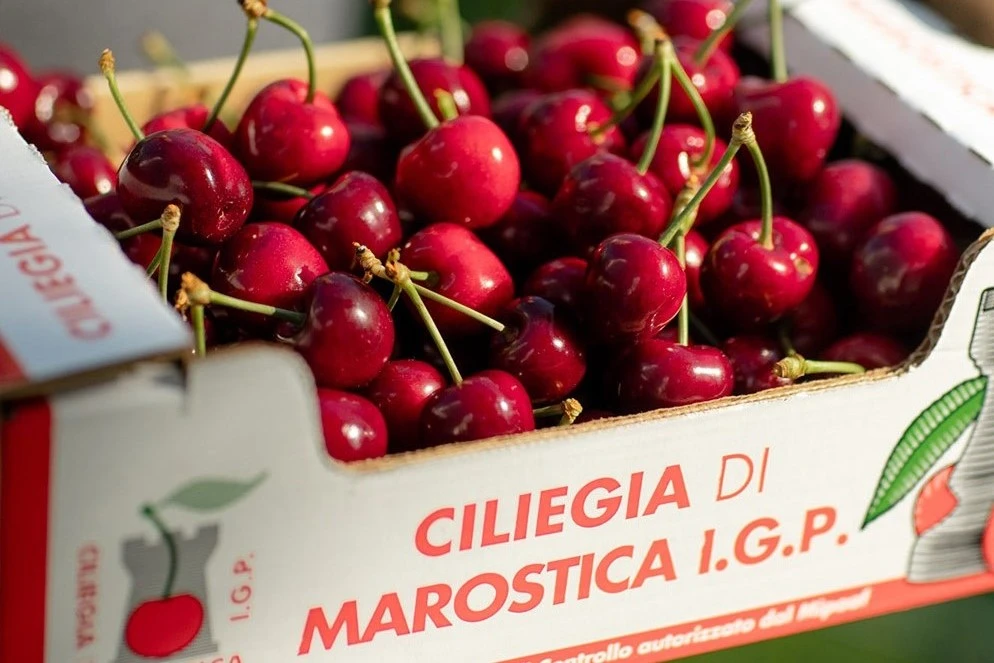The sweet cherry cultivation has seen rapid expansion in recent years, driven by strong market demand and the fruit’s nutritional and organoleptic value.
However, orchard management and intensification often overlook an important aspect: soil quality. A recent study conducted on the Loess Plateau in China systematically analyzed soil aggregate stability, a key indicator of soil health, in sweet cherry orchards of different ages and varieties.
The study examined several soil layers: 0–20, 20–40, and 40–60 cm, comparing physicochemical parameters and indicators of both mechanical and water stability of aggregates, with the aim of understanding how planting age and cultivar affect fertility and cropping sustainability.
Impact of variety and age
The results showed that both variety and planting age have a significant impact on aggregate composition and stability.
In particular, the “Jimei” cultivar exhibited the lowest mechanical stability, with reduced percentages of macroaggregates (>0.25 mm), lower geometric mean diameter, and mean weight diameter, while younger orchards with varieties such as “Tieon” at 2 and 4 years of age showed better performance in water stability.
Multivariate analysis further revealed that soil quality progressively worsens with increasing orchard age, regardless of variety, suggesting a cumulative degradation effect over time.
Soil nutrients and stability
Soil organic matter and total nitrogen in the surface layer were identified as the main factors influencing aggregate stability and, consequently, overall soil quality.
As orchard age increased, these parameters decreased, accompanied by changes in porosity, water content, and other physicochemical characteristics, which collectively contributed to the progressive weakening of soil structure.
The Soil Quality Index (SQI), obtained through a combined analysis of chemical, physical, and structural indicators, enabled classification of the different orchard conditions.
Young orchards with the “Tieon” cultivar achieved the highest scores, indicating more fertile and stable soils, while older orchards, particularly those with the “Jimei” variety, ranked lowest.
Management recommendations
The analyses confirmed that orchard age and varietal characteristics directly influence soil quality, primarily through modifications to aggregate stability and nutrient availability.
In conclusion, sweet cherry cultivation expansion must necessarily be accompanied by management strategies aimed not only at productivity but also at soil protection.
Conservation practices such as maintaining or adding organic matter, crop diversification, or the use of ground covers could mitigate the long-term negative effects of intensification.
Moreover, varietal selection should take into account not only productive and economic performance but also its impact on soil structure and fertility.
Conclusions and implications
The study provides guidance for sweet cherry management on fragile soils such as those of the Loess Plateau, within a context of production intensification and growing attention to sustainability.
The evidence gathered reinforces the idea that soil quality is a capital resource to be preserved, directly influencing yield, resilience, and the long-term sustainability of fruit production systems.
Source: Chen, M., Feng, S., Wang, J., Gao, M., Liu, M., Wang, K., Shangguan, Z., & Zhang, Y. (2025). The stability of soil aggregates in sweet cherry (Prunus avium L.) orchards of diAerent ages and varieties. Heliyon, 11(3). https://doi.org/10.1016/j.heliyon.2025.e42189
Image source: Chen et al 2025
Andrea Giovannini
University of Bologna (IT)
Cherry Times - All rights reserved










